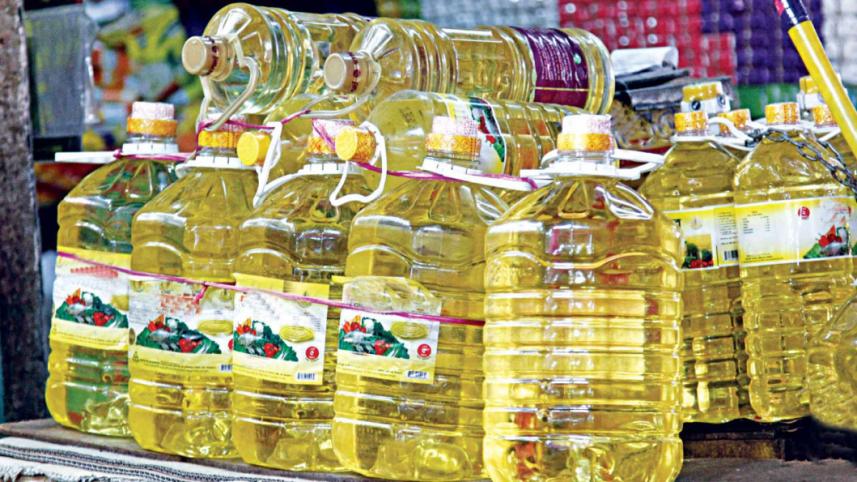What good is price control if it isn't enforced?

That consumers are having to pay an additional Tk 36-38 for every litre of non-bottled soybean oil over the price set by the government, despite record import of the item in the first quarter, is a textbook example of how the government has failed to enforce any form of price control as people keep suffering due to unbearably high prices. Moreover, each litre of palm oil is also costing Tk 21 more than the price set by the government.
Between January and March, more than one million tonnes of edible oils were imported into Bangladesh by businesses, which is nine percent more than the volume imported during the same period last year, according to data from the National Board of Revenue (NBR). In spite of that, wholesalers and retailers are claiming that supply shortages have been driving prices up. According to market insiders, this claim is false. They say oil refinery owners, dealers and brokers have been creating an artificial crisis to push the prices up.
At the end of March, the government fixed the wholesale price of non-bottled soybean oil at Tk 134 a litre and Tk 136 a litre at retail. But in Khatunganj, which is one of the largest wholesale markets in the country, the wholesale price was Tk 164 and retail Tk 174 on April 16. According to the president of the Chattogram chapter of Consumers Association of Bangladesh, this mismatch is the result of the government's poor market and refinery monitoring. On March 10, the government waived the 15 percent VAT on oil production and five percent VAT on retail until June 30 to cushion the blow of price hike in the international market. Yet, this duty waiver has not benefited the consumers. Wholesalers have alleged that some brokers and traders were hoarding edible oils, which resulted in the end consumers having to pay much more.
While this has been happening, the director-general of the Directorate of National Consumer Rights Protection told this newspaper that it was not possible for them to "to control the market with limited manpower unless the SO [supply order] sales pattern of edible oil is changed." At present, refinery owners sell SOs to a limited number of dealers and brokers, and they change hands several times before products of those SOs go to wholesale markets. That's why the prices go up several times before the products reach the markets from the mill gates. The government urgently needs to address these problems. The number of intermediaries has to be reduced, and different government departments and local administrations need to work together to bring an end to such exploitation of consumers.



 For all latest news, follow The Daily Star's Google News channel.
For all latest news, follow The Daily Star's Google News channel.
Comments